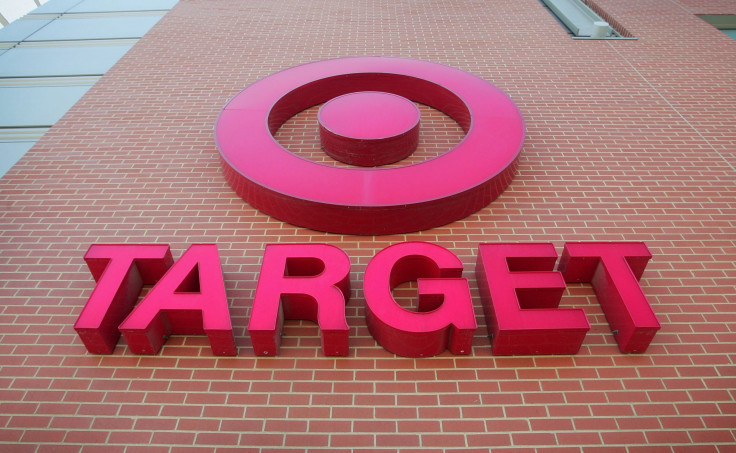Would Amazon Really Buy Target?

Amazon (NASDAQ:AMZN) should buy Target (NYSE:TGT) to counter Walmart's (NYSE: WMT) growth, according to Loup Ventures analyst Gene Munster. Munster floated a similar idea last year, but his firm is now doubling down on the radical suggestion.
Loup Ventures admitted in a recent post that its prediction that Amazon would acquire Target in 2018 was wrong, but it still believes the combination "makes sense," primarily because Amazon "needs to acquire Target-like footprints (1,800 stores) in order to continue growing its retail presence."
This article originally appeared in the Motley Fool.
Would Amazon really buy Target, which has a whopping enterprise value of nearly $50 billion? Or is this simply an analyst's pipe dream?
Why buying Target would make sense
Amazon's biggest rival in North America is Walmart, which owns over 5,300 retail stores in the United States and more than 400 stores in Canada. Walmart is turning that brick-and-mortar presence into a massive logistics and fulfillment network for online orders.
It's also expanding its e-commerce ecosystem and acquiring a long list of smaller retailers, including Jet.com, Shoes.com, Bonobos, and Bare Necessities. Those initiatives boosted Walmart's U.S. e-commerce revenues by 43% annually last quarter.
Meanwhile, Amazon's brick-and-mortar presence includes about 500 Whole Foods stores and 107 first-party stores, including Amazon Go stores, Amazon bookstores, pop-up stores, and its new Amazon 4-star store selling items that have at least that rating on its site. It also operates over 75 fulfillment centers across North America. That network pales in comparison to Walmart's brick-and-mortar footprint.
Therefore, acquiring Target -- which owns 1,850 stores and 39 distribution centers across the United States -- would help Amazon narrow the brick-and-mortar gap with Walmart. It could also launch Prime-exclusive deals for Target shoppers and use the stores as showcases for its hardware products. Buying Target would boost Amazon's annual revenues by nearly 30% (which would offset its decelerating sales growth).
The buyout would also resolve the pesky issue of Target leveraging clauses in long-term leases to block Amazon from installing delivery lockers and using Whole Foods locations to fulfill orders. Amazon would also get to add Target's smaller Indian business to its portfolio, which would complement its initiatives in the country and counter Walmart's recent takeover of Indian e-commerce giant Flipkart. As an added bonus, it could dump Alphabet's Google as Target's cloud services provider and tether the retailer to its own Amazon Web Services (AWS) platform.
Why buying Target wouldn't make sense
Amazon paid a 27% over-the-stock-price premium for Whole Foods. If Amazon paid that premium on Target's enterprise value, it would need to pay over $60 billion to close the deal, which would dwarf the $14 billion it paid for Whole Foods and represent its biggest-ever acquisition.
Amazon finished last quarter with $20.4 billion in cash and equivalents, and it generated $13.4 billion in free cash flow (FCF) over the past 12 months. This means Amazon would need to finance a large portion of the deal with debt, which isn't ideal since it's already shouldering $24.7 billion in long-term debt.
Buying Target would also drag down Amazon's margins. Here's how Target's operating margin of 4.6% last quarter -- a 40-basis-point drop from a year earlier -- compares to the operating margins of Amazon's core businesses.
Integrating Target into Amazon's North America and International operations would clearly hurt the company's margins, which are already weighed down by the Whole Foods acquisition and new brick-and-mortar stores. It would also put even more pressure on AWS to drive Amazon's bottom-line growth. Moreover, buying Target would significantly increase Amazon's exposure to rising tariffs on Chinese products.
As for its top line, Target would only significantly inflate Amazon's revenue in the first year after the deal closes. After that, the year-over-year gains would be minor, since Target usually only generates low- to mid-single-digit sales growth.
Lastly, any Amazon bid for Target would definitely be flagged by antitrust regulators. The Trump administration and other lawmakers have repeatedly criticized Amazon in the past, so trying to acquire one of the largest retailers in America could be a bad move.
But it's so crazy, it just might work
I doubt Amazon will make a bid for Target anytime soon. But if Walmart's aggressive expansion starts to hurt Amazon's growth and peels away Prime members, I wouldn't be surprised to see Amazon make a move on Target. However, that purchase could significantly throttle Amazon's free cash flow and earnings growth for a long time.
John Mackey, CEO of Whole Foods Market, an Amazon subsidiary, is a member of The Motley Fool's board of directors. Suzanne Frey, an executive at Alphabet, is a member of The Motley Fool's board of directors. Leo Sun owns shares of Amazon. The Motley Fool owns shares of and recommends Alphabet (A and C shares) and Amazon. The Motley Fool has a disclosure policy.





















